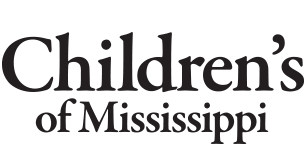I Want To
Contact Us
- For appointments by phone: (601) 984-2700 (Option 1)
- Make an Appointment
Leukemia
- Children's Cancer and Blood Disorders Home
- Bone Cancer
- Bone Marrow Transplant
- Brain and Central Nervous System (CNS) Cancer
- Germ Cell Tumors
- Hepatoblastoma
- Hodgkin's Lymphoma
- Langerhans Cell Histiocytosis
- Leukemia
- Neuroblastoma
- Non-Hodgkin's Lymphoma (NHL)
- Retinoblastoma
- Soft Tissue Cancer
- Wilms Tumor
- Children's Cancer Support Programs
Acute Lymphoblastic Leukemia (ALL)
This cancer of the blood starts in the bone marrow when your child’s body produces too many lymphocytes, a type of white blood cell. Healthy lymphoid stem cells develop into cells which fight infection and cancer.
When you have ALL, the abnormal lymphoid cells, called “blasts,” do not mature and are unable to fight infection. They reproduce quickly, crowding out healthy red blood cells, white blood cells and platelets and may collect in your child’s blood, bone marrow and lymph tissue. This process causes marrow failure.
Since healthy marrow produces platelets, white blood cells and red blood cells, marrow failure may lead to bleeding problems, infections and severe anemia. ALL is the most common type of cancer in children. About three-fourths of children’s leukemias are ALL. Sometimes it can occur and progress quickly. Symptoms may appear in days or in a few weeks.
Can my child survive leukemia?
The short answer is “yes.” The numbers are on their side. Statistics may show more than 80 percent of children survive ALL for five years or longer, but that can be misleading. Doctors assess many factors to determine treatment and the likely outcome for each child. Some subtypes of ALL have better statistical survival rates and some have lower ones.
Families should know that statistics will not drive the outcome for your child. Each person is different, so statistics cannot determine an individual’s outcome. Doctors will discuss your child’s specific type of leukemia with you and other health conditions that may affect the outcome.
At the Children's Cancer Center at Children's of Mississippi, where research already has led to longer survival, doctors are searching for more and more ways for your child to defeat cancer.
Your child's hematology/oncology team
Hematologists/oncologists are doctors who specialize in blood and lymphatic disorders, especially blood cancers. At the Children's Cancer Center, they also specialize in working with sick children and their families. Together, with a large group of other doctors, specialists and support personnel, they work to help your child recover.
Others on this team include nurse practitioners, pathologists, radiologists, transfusion medicine specialists, psychologists, radiation oncologists, and nurses with experience in blood and lymphatic disorders, medical technologists, counselors, child life specialists, teachers, dietitians and social workers. Some team members you will see regularly. Others you may never meet.
What we do
Your child’s cancer care team at the Children's Cancer Center is part of Batson Children's Hospital and UMMC Cancer Institute. This pediatric team specializes in treating cancers which start in your child’s bone marrow and lymphatic system. In fact, this is the only place in the state you can receive some treatments. For example, this hematology/oncology care team operates the only bone marrow and stem cell transplant unit for children in the state, is one of the few places in the state to offer apheresis and has a blood bank on-site to help treat your child.
Your doctors also can offer your child the opportunity to enroll in clinical trials which test new treatments for many cancers. Your doctors will take into consideration the type of cancer your child has, how advanced it is and other conditions he may have in making recommendations for your child’s treatment. Many of your child’s doctors also teach the state’s next generation of caregivers and do research on new ways to earlier diagnose blood cancers and to treat them. They have to know the latest ways to detect, diagnose and treat cancers and use that knowledge every day to treat the state’s children.



 UMMC
UMMC